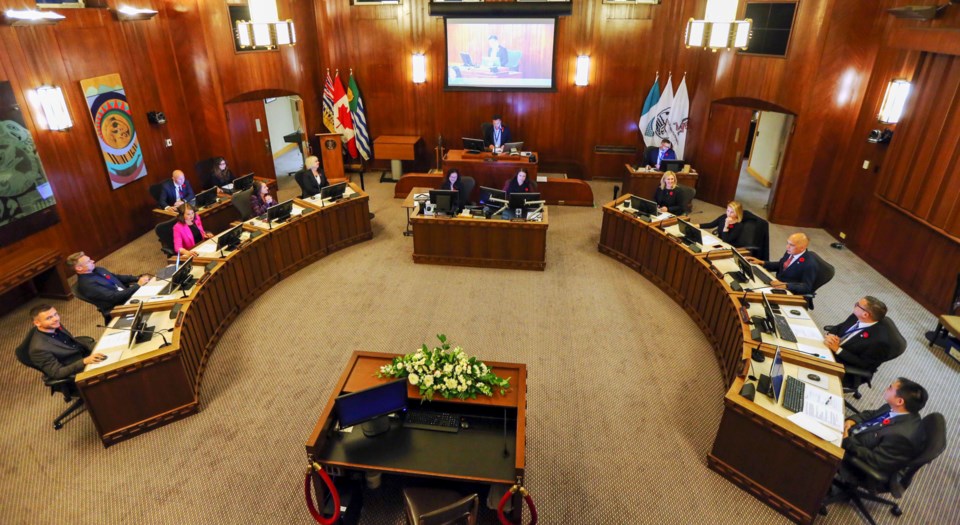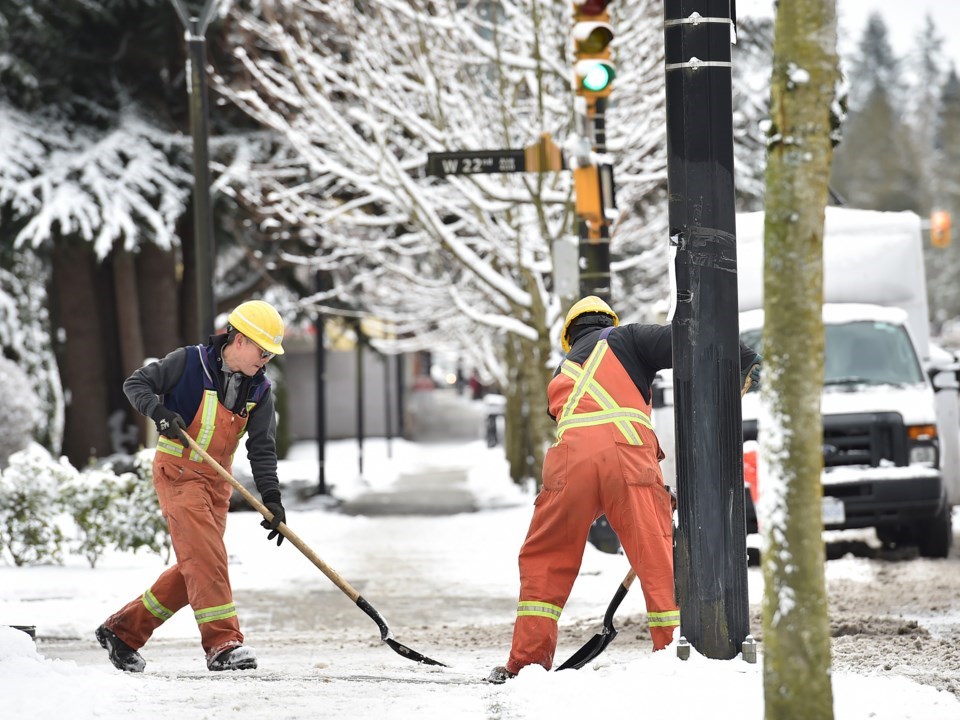Full-time employees working for the City of Vancouver have an average current absentee rate of more than 18 days per year, according to Mayor Ken Sim’s budget task force report released Wednesday.
That rate is even higher among full-time park board employees at 25 days.
“While some level of absenteeism is normal, with a concerted holistic effort including safety, support and accountability, there is a significant opportunity to reduce absenteeism so that it is closer to the overall provincial average of 10 days per year per [full-time equivalent],” the report said.
City staff estimate that each day of reduced absenteeism across the board would result in savings of approximately $4.5 million per year, said the report, which was requested by Sim in an effort to find efficiencies in the city’s budget, identify potential new revenue streams and flag any duplications that may exist.
The report doesn’t indicate the reason or reasons for the absentee rates but recommends the city implement a strategic initiative to proactively manage absenteeism.
“This should include a number of interrelated activities [for example, ensuring holistic employee supports are in place, updating safety and health programs and implementing time-tracking, etc.], and should include labour leadership working with department leaders in developing and implementing the necessary changes,” the report said.
Ensuring city's 'long-term sustainability, prosperity'
The report was completed by a group of volunteers chosen by Sim with backgrounds in accounting and finance. The authors made 17 recommendations aimed at “ensuring the city’s long-term sustainability and prosperity.”
The report points out what Vancouver city officials and municipal politicians have said for decades — that the city doesn’t receive enough funds from senior governments. As a result, the city is taking on more roles of senior governments.
“This expansion, driven by crises in areas such as housing access and affordability, opioid use, mental health, climate change, child care and cost of living has led to increased costs for the city’s residents and businesses, creating an unsustainable financial burden,” the report said.
Estimates are that in 2023 alone, the City of Vancouver spent more than $150 million in operating expenses and more than $230 million in capital expenditures outside of traditional service areas.

'A more disciplined focus'
Although the Vancouver Charter may technically permit city council decisions that expand its service areas, the city needs “a more disciplined focus to determine what it must do, what it should do, what it cannot do and what trade-offs exist within these decisions.”
At present, when council decides to provide services outside of the city’s core jurisdiction, the current process does not allow for the internal segregation of operations or funds in order to track, manage and report on the associated costs.
“A principled council policy that defines where the City of Vancouver has core jurisdiction could provide ‘guardrails’ for the decision-making process,” the report said.
“While this policy should not be prescriptive or prevent the city from making spending decisions, it would provide a standard and rigorous evaluation framework that would protect the residents of Vancouver from the consequences of decisions that reach beyond Vancouver’s core jurisdiction.”
Ideally, the report added, the decision-making tool would be politically neutral and could be used by any city council.
'Critical situation'
The report’s authors describe Vancouver as being in a “critical situation,” with its rising property taxes — 7.5 per cent this year, 10.7 per cent last year — and “staggering” $500 million annual infrastructure funding deficit.
“This situation requires immediate attention,” the report said. “The city must find cost savings and efficiencies, find new revenue sources that do not increase taxes and collaborate with senior levels of government to sufficiently fund infrastructure and programs.”
The report says an increase in property taxes and utility levies alone will not address the $500 million annual infrastructure funding deficit.
“Resolving this deficit involves optimizing the city’s asset portfolio, including evaluating and potentially divesting some of the city’s non-core assets, expediting the transformation of the city’s Property Endowment Fund, and maximizing the value of its social housing dollars,” the report said.
The group’s mandate excluded the Vancouver Park Board, the Vancouver Police Department, the Vancouver Public Library and Metro Vancouver, as each of these organizations have their own separate governance boards and models.
However, the authors said, many of their recommendations have “indirect applicability to these areas” and encourage council to consider reviewing the organizations in the future, given their substantial share of the city’s operating budget.
The task force report and all 17 recommendations can be read on the city's website. The report, which was supposed to be available to the public last fall, is scheduled to go before council at its Jan. 23 meeting.




